By, Michelle Infante-Casella, Agricultural Agent/Professor, RCE of Gloucester Co. and William Bamka, Agricultural Agent/Associate Professor, RCE of Burlington Co.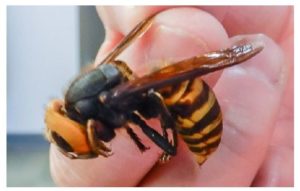
Although media reports have triggered panic over the Asian giant hornet (Vespa mandarinia), there are no reports this pest is present anywhere else in North America besides the Pacific Northwest. Rutgers Cooperative Extension, Agriculture and Natural Resource personnel have received inquiries to identify hornets found by the public. In New Jersey, Rutgers Cooperative Extension county offices have not identified any submitted specimens to be the Asian Giant Hornet. The Asian giant hornet has only had confirmed sightings in Washington State and British Columbia, Canada.
“The species has not yet been detected this spring in Washington State or the British Columbia or anywhere else on the West Coast”, said Professor Dina M. Fonseca, director of the Center for Vector Biology in the Department Entomology in the School of Environmental and Biological Sciences at Rutgers–New Brunswick. “We do not know how the species arrived in the United States but it is important to not overreact.”
Washington State University’s information on the Asian giant hornet confirmed the first U.S. sighting of this hornet in the wild. The first two specimens were found in Nanaimo and White Rock, British Columbia, Canada in fall of 2019.
The hornets were reported to be attacking colonies of honeybees in Washington State. The Asian Giant Hornet is known to aggressively attack honeybees and can destroy entire honeybee colonies. Washington State University recently published an extensive fact sheet with identification and guidance for the public. According to the WSU Pest Alert, Asian Giant Hornets are not generally aggressive towards people, but may sting when threatened.
“The Asian giant hornet is unlikely to be present in New Jersey,” Fonseca said. “while citizens in the Pacific Northwest can help detect any emerging hornets this spring, which is critical for its control, the indiscriminate killing of bees, wasps or other hornet lookalikes, would be detrimental because of beneficial roles these insects provide as plant pollinators and predators of agricultural pests.”
An insect that looks similar and can be confused for the Asian giant hornet is the Cicada killer wasp (Sphecius speciosus). They large solitary 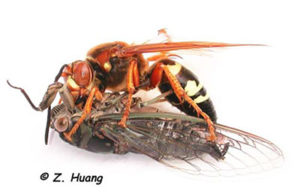 wasps found throughout the U.S. and burrow holes in the soil. Even with their large size, dangerous appearance and “dive-bombing” habit, adult Cicada killer wasps rarely come in contact with people and it is rare they will sting. The males of this species will make “dive-bombing” flight patterns, but do not have a stinger and an attack would not result in a sting. The female’s tubular egg-laying structure on the rear end can function as a very weak stinger. Her mild sting is similar to a slight pin scratch and is not considered by most people to be painful. Rutgers Cooperative Extension has more information on the Cicada Killer Wasp and other bees and wasps.
wasps found throughout the U.S. and burrow holes in the soil. Even with their large size, dangerous appearance and “dive-bombing” habit, adult Cicada killer wasps rarely come in contact with people and it is rare they will sting. The males of this species will make “dive-bombing” flight patterns, but do not have a stinger and an attack would not result in a sting. The female’s tubular egg-laying structure on the rear end can function as a very weak stinger. Her mild sting is similar to a slight pin scratch and is not considered by most people to be painful. Rutgers Cooperative Extension has more information on the Cicada Killer Wasp and other bees and wasps.
As more information comes out regarding the Asian giant hornet, it is best to pay attention to where this insect has been confirmed and how far it has spread. It is most likely that the Asian giant hornet would first spread and be reported in surrounding areas bordering Washington State and British Columbia, Canada before any reports would occur on the East Coast. Knowing this information may help to calm fears when seeing other hornets and wasps. As always, take precautions and avoid contact with stinging insects. For identification and recommendations contact your local county Rutgers Cooperative Extension office.
 Articles in this section contain information helpful to the NJ commercial organic grower.
Articles in this section contain information helpful to the NJ commercial organic grower.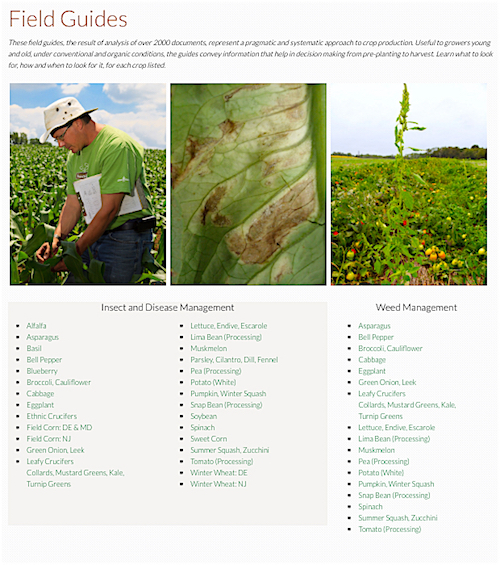
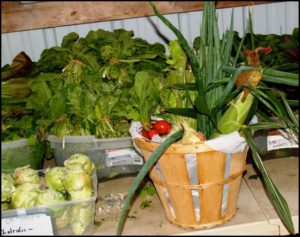
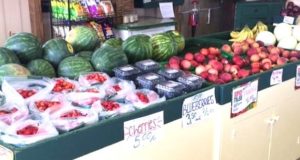 t webinar series, every Tuesday in May from 7:00-8:00PM to assist farmers with on-farm direct marketing operations to develop strategies for the 2020 season. This 4-part, weekly program will present and discuss the following topics:
t webinar series, every Tuesday in May from 7:00-8:00PM to assist farmers with on-farm direct marketing operations to develop strategies for the 2020 season. This 4-part, weekly program will present and discuss the following topics: ommitted to the agriculture industry and all interested in growing plants, raising livestock and essential resources related to agriculture. The program now features a new
ommitted to the agriculture industry and all interested in growing plants, raising livestock and essential resources related to agriculture. The program now features a new 
